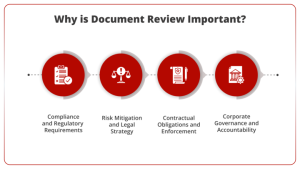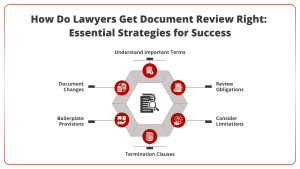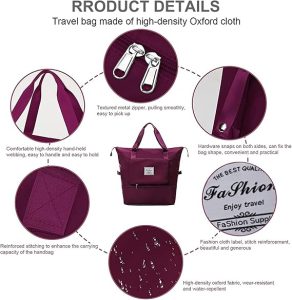At Destination CLEs, our conferences offer a dynamic platform for engaging with experts and peers. They help you stay current on legal trends and deepen your understanding of law. These gatherings are not just about learning; they’re about connecting with others in the field, sharing experiences, and discovering new approaches to enhance your practice.
Join us to explore advanced document review techniques and more, ensuring you remain at the forefront of the legal profession.
Understanding Document Review
Document review is essential for legal teams to identify key, sensitive documents that shape case strategy and outcomes. From corporate compliance to contract negotiations and litigation, knowing what to retain, disclose, or contest is critical.
The Stages of Document Review
Document review spans several stages, starting with discovery and ending with production. Here’s how it unfolds:
- Identification: This initial stage involves locating potential sources of information, which could include anything from emails and contracts to internal reports and invoices.
- Preservation: Once relevant sources are identified, efforts must be made to preserve them in their original form to prevent data tampering or loss.
- Collection: The preserved documents are then collected in a manner that maintains their integrity. This step ensures that the documents are secure and traceable.
- Review: This is where the real scrutiny happens. Legal teams review the documents to determine relevance to the case, tagging and categorizing each document accordingly.
- Analysis: After reviewing, the analysis comes in, where the significance of the documents is evaluated. This involves understanding the implications of the content and how it ties into your case strategy.
- Production: Finally, the relevant documents are prepared and organized for production in court or to opposing counsel.
Document review ensures that every piece of paper or digital document you present in court is accounted for and legally permissible. More than just sifting through piles of paper or digital files, it’s about catching the details that could make or break your case.
Why is Document Review Important?

Document review is often the most labor-intensive and costly phase in litigation. Since the aim is to identify documents for court production, the quality of your document review can significantly influence the outcome of a case. Finding a legal victory that didn’t rely heavily on solid document review is rare.
Compliance and Regulatory Requirements
Document review isn’t just about litigation. It also ensures compliance with laws that dictate how documents should be handled, produced, and protected. For example:
- HIPAA: Ensures patient information confidentiality, affecting how medical records are handled in legal cases.
- FISMA and GDPR: Protect consumer information, impacting data management across industries.
These regulations protect various stakeholders, including employees, consumers, and the general public, while maintaining integrity in business processes.
Risk Mitigation and Legal Strategy
Beyond identifying relevant documents, the review process assists lawyers in creating a case strategy. Document insights can highlight a case’s strengths and weaknesses, guide witness deposition decisions, and anticipate potential courtroom challenges. This strategic aspect of document review is crucial for legal success, helping to mitigate risks and shape effective legal arguments.
Contractual Obligations and Enforcement
Document review is crucial in contract law to ensure all parties understand and agree to their contractual obligations. By meticulously reviewing contract documents, lawyers can verify that the terms are enforceable and aligned with their client’s interests and legal requirements. This step prevents future disputes by ensuring all provisions are precise and legally sound, thereby reducing the risk of litigation due to contractual misunderstandings or non-compliance.
Corporate Governance and Accountability
Document review is integral to maintaining proper corporate governance and accountability in corporate law. It ensures that all corporate actions are documented and compliant with statutory and regulatory requirements. This includes reviewing board meeting minutes, shareholder agreements, and financial disclosures. Effective document review helps prevent corporate fraud and mismanagement, ensuring that directors and officers are accountable for their actions and that corporate decisions are made transparently and ethically.
How Do Lawyers Get Document Review Right: Essential Strategies for Success
Document review is a fundamental aspect of contract law, vital for protecting your client’s interests and ensuring enforceable agreements. Here’s how to review your documents effectively:
Understand Important Terms
At the beginning of most contracts, there’s a section dedicated to defining key terms. This section is crucial—never rush through it. Take your time to understand how the contract specifies the following fully:
- Parties Involved: Clarify who is bound by the contract.
- Services Rendered: Specify the services that will be provided.
- Compensation and Payment Terms: Detail how and when payments should be made.
- Timelines and Deadlines: Identify critical milestones and deadlines.
- Termination Provisions: Define the conditions under which the contract can be terminated.
- Intellectual Property Rights: Determine ownership rights.
- Confidentiality Clauses: Know what information needs to remain confidential.
Seek clarification for any ambiguous terms to prevent future disputes.
Review Obligations
The core of the contract details the obligations of each party. Examine the responsibilities and deliverables your client is committing to:
- Are the obligations specific and clear?
- Are the timelines reasonable and feasible?
- What happens if unforeseen events affect these obligations?
- Are any responsibilities too vague and require more definition?
- Do these duties align with what your client expects?
Avoid assumptions; if anything is unclear, request further clarification.
Consider Limitations
Contracts often limit liability and include disclaimers. Focus on clauses that:
- Exclude warranties, like merchantability or fitness for a particular purpose.
- Cap liability or exclude certain damages.
- Require indemnification of the other party.
- Include arbitration or limit class actions.
- Restrict working with competitors or within the industry.
These limitations can profoundly affect your client’s rights, so it’s crucial to understand them fully.
Termination Clauses
Good contracts clearly outline how to terminate the agreement:
- What are valid reasons for termination without penalty?
- What notice must be given, and how?
- Are there any penalties for early termination?
- How are ongoing projects or intellectual property handled post-termination?
- Is there a chance to fix breaches before termination?
Understanding these rules can prevent misunderstandings and facilitate a smoother exit from the agreement if necessary.
Boilerplate Provisions
Don’t ignore the “boilerplate” section at the end of the contract. It often includes:
- Governing law and dispute resolution settings.
- Severability if parts of the contract are invalidated.
- Assignment of obligations to third parties.
- General compliance with laws and regulations.
Review them carefully because these provisions can significantly influence litigation and operational strategies.
Document Changes
Any modifications or additional agreements discussed during the review should be documented and incorporated into the final contract. Relying on verbal promises, which are difficult to enforce, can lead to disputes.
By following this document review method, you ensure comprehensive protection for your clients and uphold the integrity of every contract you handle.
Common Challenges and Best Practices in Legal Document Review
Managing Large Volumes of Documents
When faced with the daunting task of reviewing large volumes of documents, it’s easy to feel overwhelmed. However, with a strategic method, you can manage this challenge effectively.
- Start by narrowing down your review funnel from the collection and early case assessment stages. This means being selective about which documents to pull into the review process, focusing only on those most likely relevant to your case.
- Utilize technology to streamline the handling of these documents. Document management systems, artificial intelligence (AI), and machine learning (ML) can significantly enhance your efficiency. These tools help automate the sorting and categorization of documents, making it easier to manage large data sets and retrieve necessary files quickly.
- Use automated tools. Tools that automatically detect and categorize information based on predefined criteria help minimize errors and free up your time to focus on more strategic aspects of the case.
Ensuring Confidentiality and Privilege
Confidentiality and the protection of privileged information are pillars of legal document review. Maintaining the integrity of sensitive communications and upholding attorney-client privilege is crucial.
- Conduct a thorough privilege review to determine which documents are protected and can be withheld from disclosure to manage this.
- In addition to meticulous review practices, consider utilizing a “claw-back agreement,” especially in complex cases involving massive document exchanges. Such agreements are supported by Federal Rule of Evidence 502(d), which provides that any confidential information inadvertently disclosed during discovery must be returned promptly without waiving the privilege associated with the document.
- Employ robust document management systems with strong security measures to protect sensitive information. Ensure these systems comply with industry standards and effectively manage access controls.
Stakeholder Consultation
Throughout the review process, regularly consult with stakeholders. This includes discussions with your legal team, clients, and technology providers. Collaboration ensures everyone is aligned and that you efficiently cover all necessary legal bases.
By addressing these challenges and implementing best practices, you can turn the tedious task of legal document review into a more streamlined, accurate, and secure process. This enhances your capability to manage information effectively and supports the overall success of your legal endeavors.
Staying Current in Legal Practice: The Role of Continuing Legal Education (CLE)
In the legal profession, staying informed about the latest legislative updates and changes in law is crucial. Legal frameworks are continually adjusted, and new regulations frequently affect various aspects of practice, from document review to compliance and litigation strategies.
Engaging in continuous learning, especially through CLE programs like Destination CLEs, helps legal professionals stay informed about the latest law and developments in ethical standards. With travel and accommodations organized for you, Destination CLEs lets you focus fully on learning, networking, and preparing for the future of law.
Join the Ultimate Legal Learning Adventure: Secure Your Spot at Destination CLEs!
Destination CLEs redefine the way legal professionals meet their continuing education requirements. Our conferences blend educational opportunities with cultural immersion in some of the world’s most captivating cities.
Why Choose Destination CLEs?
- Meet CLE Requirements: Fulfill your mandatory CLE credits through engaging, high-quality seminars in stunning global locations.
- Transformative Learning: Turn the usual lecture-based learning on its head by engaging in sessions as dynamic as the destinations.
- Networking Opportunities: Connect with peers worldwide, expanding your professional network in settings that encourage collaboration and growth.
- All-Inclusive Experience: Enjoy comprehensive packages that cover educational sessions, accommodations, and unique cultural experiences, making your learning adventure seamless and memorable.
- Efficient Credit Earning: Earn required CLE credits efficiently, with schedules that balance professional development and exploration.
Plan your next educational journey with Destination CLEs and ensure extraordinary professional development. Our 2024-2025 lineup includes diverse locales such as Lisbon, Puerto Vallarta, Dubai, Havana, and an Alaska Cruise—each offering a distinct blend of legal education and local culture.
Secure your spot today and become part of a community dedicated to professional growth and networking.
DestinationCLEs.com is a participant in the Amazon Services LLC Associates Program, an affiliate advertising program designed to provide a means for sites to earn advertising fees by advertising and linking to Amazon dot com.












